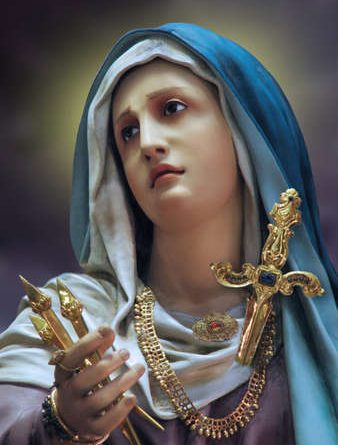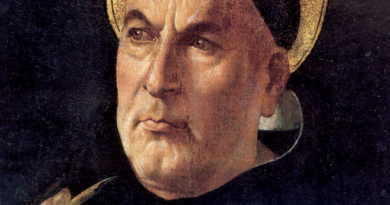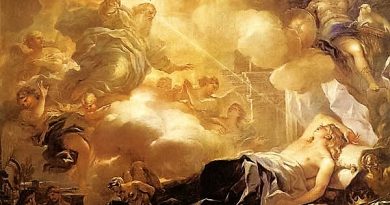Our Lady of Sorrows Feast
On the Maltese Islands on Friday before the Good Friday we celebrate the Feast of Our Lady of Sorrows. In fact, this day serves as a good preparation for the celebration of the Holy Week.
Even if this year we were not able to celebrate it however the feast suggests a strong resource of spirituality. On this day, at the school of Mary, we contemplate value of suffering. The Mother of God too had to undergo immense suffering. She was the first one to live the direct effects of Jesus words when he said in the Lukan Gospel: But before all this they will lay their hands on you and persecute you, delivering you up to the synagogues and prisons, and you will be brought before kings and governors for my name’s sake. This will be a time for you to bear testimony. Settle it therefore in your minds, not to meditate beforehand how to answer; for I will give you a mouth and wisdom, which none of your adversaries will be able to withstand or contradict. You will be delivered up even by parents and brothers and kinsmen and friends, and some of you they will put to death; you will be hated by all for my name’s sake. But not a hair of your head will perish. By your endurance you will gain your lives (Luke 21:12-19).
Mary is also the first disciple who receives the blessing Jesus accords to those who are persecuted for his sake. In the Matthean Gospel Jesus promises: Blessed are those who are persecuted for righteousness’ sake, for theirs is the kingdom of heaven. “Blessed are you when men revile you and persecute you and utter all kinds of evil against you falsely on my account. Rejoice and be glad, for your reward is great in heaven, for so men persecuted the prophets who were before you (Matt 5:10-12).
St Alphonsus Ligouri, in his book The Glories of Mary, delves deeper into the seven sorrows of Mary. He composed them into the form of a chaplet on the same style as the scriptural rosary. Moreover, in every meditation on each and every sorrow of Mary Liguori inserts many quotes from the saints, theologians and other holy men and women. Thus, his chaplet gets a very enriching Marian flavour.
The 1st Sorrow of Our Lady: The Prophecy of Simeon.
- How much more miserable would life be, if everyone knew also the future evils which were to afflict him!
- The Lord exercises his compassion towards us, that he does make known to us the crosses that await us.
- But he did not exercise this compassion with Mary, who, God wished to be the queen of dolors, and in all things like his son, and to see always before her eyes, and to suffer continually the passion and death of her beloved Jesus.
- Mary received with the greatest calmness the announcement that her Son should die, and peacefully continued to submit to it.
- But what grief she must have continually suffered.
- And the nearer the time the passion of her Son approached, with so much greater pain did that sword of sorrow, predicted by St Simon, pierce the heart of the mother.
- If, then, Jesus our King and his most holy mother did not refuse, for love of us, to suffer during their whole life such cruel pains, there is no reason that we should complain to suffer a little.
The 2nd Sorrow of Our Lady: The Cold Flight into Egypt.
- What great tribulation than that of a newborn child, clinging to its mother’s bosom, should be forced to fly with the mother herself.
- How piteous a spectacle it was to see that tender Virgin, with that newly born infant in her arms wandering through the world.
- Authors generally agree, that it was four hundred miles so that it was a journey of thirty days.
- The season was winter, and therefore they had to travel in snow, rain, wind and storms, and through bad and difficult roads.
- Where could they have slept except on the sand, or under some trees in the wood, in the open air, exposed to robbers, or those wild beasts with which Egypt abounded.
- The sight, then, of Jesus and Mary wandering like fugitives through this world, teaches us that we should also live as pilgrims on the earth.
- Let us then love them, let us console Mary by receiving her son within our hearts, whom, even now, men continue to persecute with their sins.
The 3rd Sorrow of Our Lady: The Loss of the Child Jesus in the Temple.
- Let us imagine what distress that afflicted mother must have experienced in those three days in which she was searching for her Son.
- The afflicted mother had no rest, but wept and prayed without ceasing to God that he would enable her to find her son.
- Origen says, that through the love which this holy mother bore her Son, she suffered more at this loss of Jesus than any martyr ever suffered at death.
- Ah, how long were these three days for Mary! They appeared three ages!
- This sorrow of Mary ought, in the first place, to serve as a comfort to those souls who are desolate and who do not enjoy the sweet presence they once enjoyed in the Lord.
- He often hides himself that she may seek him with greater desire and joy.
- But those who would find Jesus must seek him, not amid delights and pleasures of the world, but amid crosses and mortifications.
The 4th Sorrow of Our Lady: Our Lady Meets Jesus on the Way to Cavalry.
- All mothers feel the sufferings of their children as their own…. But what mother ever loved a child so much as Mary Loved Jesus?
- The greater the tenderness with which she loved him, the greater was her grief at the sight of his sufferings.
- This most afflicted mother met her most afflicted Son said St Bernard.
- While Mary stopped in that place how much she must have heard said against her Son by the Jews who knew her, and perhaps also words of mockery of herself!
- At length they look at eachother…a look of sorrow, which pierced, as with so many arrows, those two holy and loving souls.
- But although the sight of her dying Jesus must cost her such cruel anguish, the loving Mary will not leave him.
- Let us then pity her, and endeavor also ourselves to accompany her Son and herself, bearing with patience the cross which the Lord imposes upon us.
The 5th Sorrow of Our Lady: Jesus Dies on the Cross.
- A Mother condemned to see an innocent Son, whom she loved with all the affection of her heart, put to death before her eyes.
- Under the cross this mother in agony, who was suffering all the pain that her Son was suffering.
- As St Bernard says, love inflicted on the heart of Mary the same suffering that the nails caused in the body of Jesus.
- But what increased most the sorrows which Mary suffered through compassion for her Son, was to hear him complain on the cross that even the eternal Father had abandoned him.
- Thus the afflicted mother saw her Jesus suffering on every side, she desired to comfort him, but could not.
- Near the cross stood his mother, speechless; living she died; dying she lived.
- If the lips of Mary were silent, her heart was not so; for she did not cease offering to divine justice the life of her Son for our salvation.
The 6th Sorrow of Our Lady: The Piercing of the Side of Jesus and Descent from the Cross.
- There came out blood and water, for only a few drops of blood remained, …. in order to show that he had no more blood to give us.
- St Bernard says: The spear which opened his side passed through the soul of the Virgin, which could not be torn from the heart of Jesus.
- The holy Fathers explain this to be the very sword predicted to the Virgin by St Simeon; a sword, not of iron, but of grief.
- Let us consider what anguish it would cause any mother to receive the lifeless body of a son!
- The afflicted mother [raised] herself and extending her arms to meet her dear Son; she embraces him, and then sits down at the foot of the cross.
- What grief would she feel to see that men after the death of her Son, continue to torment and crucify him by their sins.
- Oh afflicted Virgin…ah mother, have pity on me, for I have not loved God, and I have so much offended Him.
The 7th Sorrow of Our Lady: The Burial of Jesus.
- When they reached the appointed place how gladly would Mary have buried herself there alive with her son.
- Mary left her heart buried with Jesus, because Jesus was all her treasure.
- This poor mother went away so afflicted and sad, according to St Bernard, that she moved many to tears against their will.
- Wherever she passed, all wept who met her.
- Alas! what a night of sorrow was that night for Mary.
- Ah, turn to Mary and say to her with St Bonaventure: Let me, oh my Lady, let me weep, thou art innocent, I am guilty.
- My afflicted Mother, I will not leave thee alone to weep; no, I wish to keep thee company with my tears.
Another valuable resource with personally found it helpful is the sermon by Saint Bernard of Clairvaux when he comments on Mary’s presence on the Calvary by the Cross of her Son Jesus. In this sermon, which we read on the liturgical feast day of Our Lady of Sorrows on September 15 there are some theological and spiritual aspects which touched my heart.
First, the martyrdom of the Virgin Mary is to be found in the prophecy of Simeon at the temple. Second, Mary received her martyrdom even after Jesus died on the Cross. The case in point is the cruel spear which transfixed Jesus’ side, who was dead. But Mary witnessed all this cruelty in silence. Third, Mary is a martyr in spirit. She took John, a man, a servant, who takes the place of Jesus, the Son of God, God himself, the Master of everyone and everything.
Or were those words, Woman, behold your Son, not more than a word to you, truly piercing your heart, cutting through to the division between soul and spirit? What an exchange! John is given to you in place of Jesus, the servant in place of the Lord, the disciple in place of the master; the son of Zebedee replaces the Son of God, a mere man replaces God himself. How could these words not pierce your most loving heart, when the mere remembrance of them breaks ours, hearts of iron and stone though they are!
The martyrdom of the Virgin is set forth both in the prophecy of Simeon and in the actual story of our Lord’s passion. The holy old man said of the infant Jesus: He has been established as a sign which will be contradicted. He went on to say to Mary: And your own heart will be pierced by a sword.
Truly, O blessed Mother, a sword has pierced your heart. For only by passing through your heart could the sword enter the flesh of your Son. Indeed, after your Jesus – who belongs to everyone, but is especially yours – gave up his life, the cruel spear, which was not withheld from his lifeless body, tore open his side. Clearly it did not touch his soul and could not harm him, but it did pierce your heart. For surely his soul was no longer there, but yours could not be torn away. Thus the violence of sorrow has cut through your heart, and we rightly call you more than martyr, since the effect of compassion in you has gone beyond the endurance of physical suffering.
Or were those words, Woman, behold your Son, not more than a word to you, truly piercing your heart, cutting through to the division between soul and spirit? What an exchange! John is given to you in place of Jesus, the servant in place of the Lord, the disciple in place of the master; the son of Zebedee replaces the Son of God, a mere man replaces God himself. How could these words not pierce your most loving heart, when the mere remembrance of them breaks ours, hearts of iron and stone though they are!
Do not be surprised, brothers, that Mary is said to be a martyr in spirit. Let him be surprised who does not remember the words of Paul, that one of the greatest crimes of the Gentiles was that they were without love. That was far from the heart of Mary; let it be far from her servants.
Perhaps someone will say: “Had she not known before that he would not die?” Undoubtedly. “Did she not expect him to rise again at once?” Surely. “And still she grieved over her crucified Son?” Intensely. Who are you and what is the source of your wisdom that you are more surprised at the compassion of Mary than at the passion of Mary’s Son? For if he could die in body, could she not die with him in spirit? He died in body through a love greater than anyone had known. She died in spirit through a love unlike any other since his.
What does it mean for you the Feast of Our Lady of Sorrows? What does it tell you of Mary’s love for you? Do you believe that she is present and accompanying you when you are sorrowful and suffering any kind of persecution for Christ’s sake?
Fr Mario Attard OFM Cap




